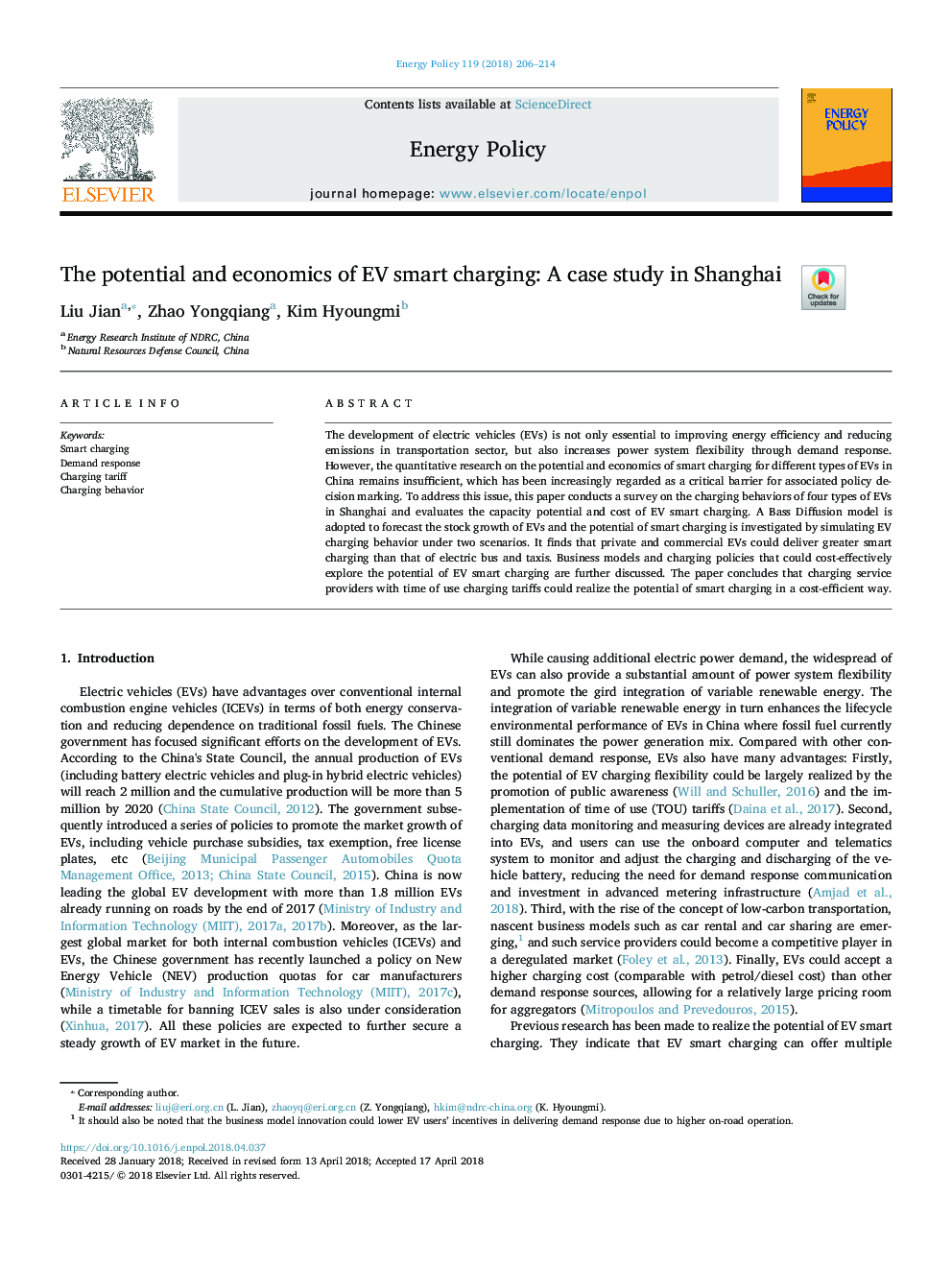| Article ID | Journal | Published Year | Pages | File Type |
|---|---|---|---|---|
| 7396757 | Energy Policy | 2018 | 9 Pages |
Abstract
The development of electric vehicles (EVs) is not only essential to improving energy efficiency and reducing emissions in transportation sector, but also increases power system flexibility through demand response. However, the quantitative research on the potential and economics of smart charging for different types of EVs in China remains insufficient, which has been increasingly regarded as a critical barrier for associated policy decision marking. To address this issue, this paper conducts a survey on the charging behaviors of four types of EVs in Shanghai and evaluates the capacity potential and cost of EV smart charging. A Bass Diffusion model is adopted to forecast the stock growth of EVs and the potential of smart charging is investigated by simulating EV charging behavior under two scenarios. It finds that private and commercial EVs could deliver greater smart charging than that of electric bus and taxis. Business models and charging policies that could cost-effectively explore the potential of EV smart charging are further discussed. The paper concludes that charging service providers with time of use charging tariffs could realize the potential of smart charging in a cost-efficient way.
Related Topics
Physical Sciences and Engineering
Energy
Energy Engineering and Power Technology
Authors
Liu Jian, Zhao Yongqiang, Kim Hyoungmi,
